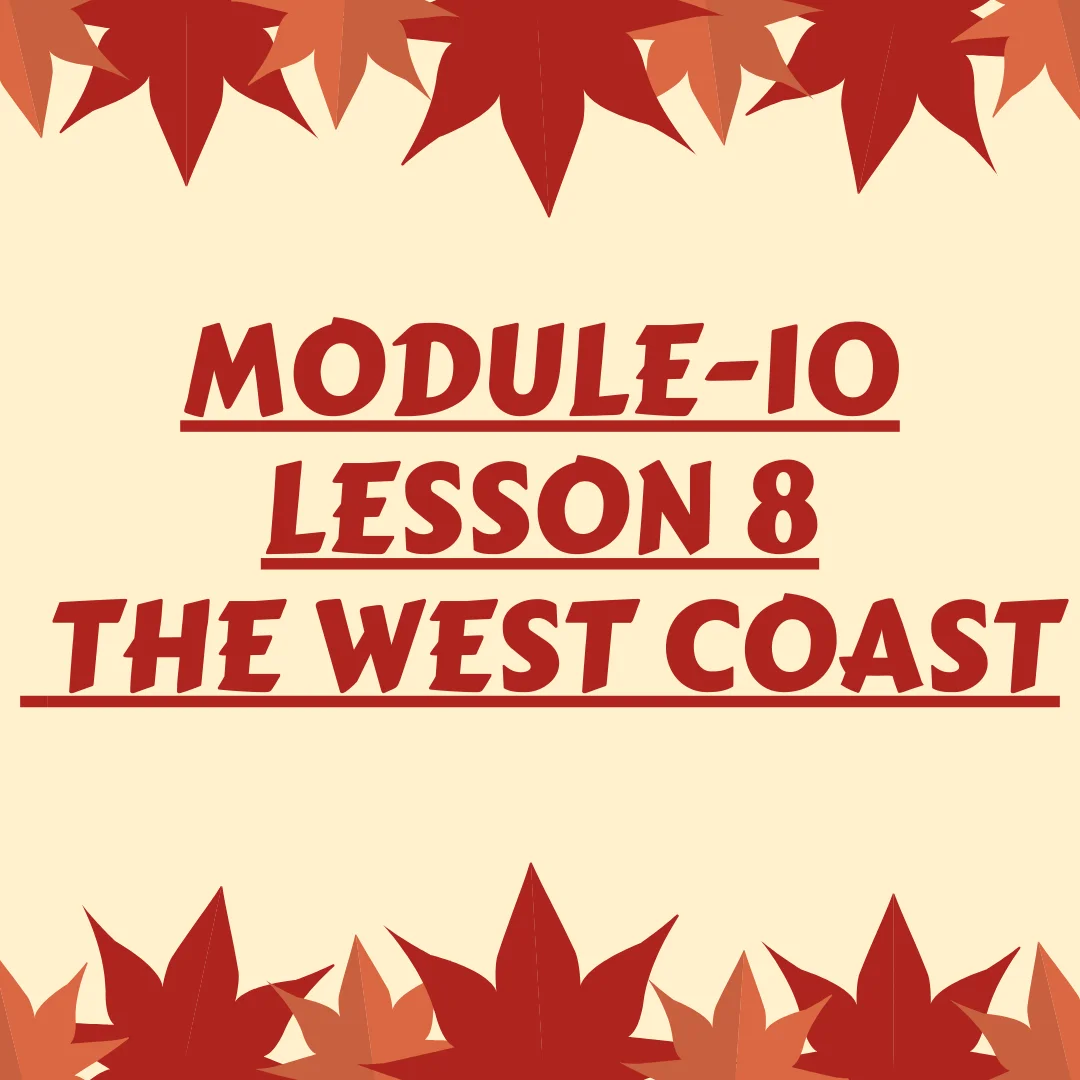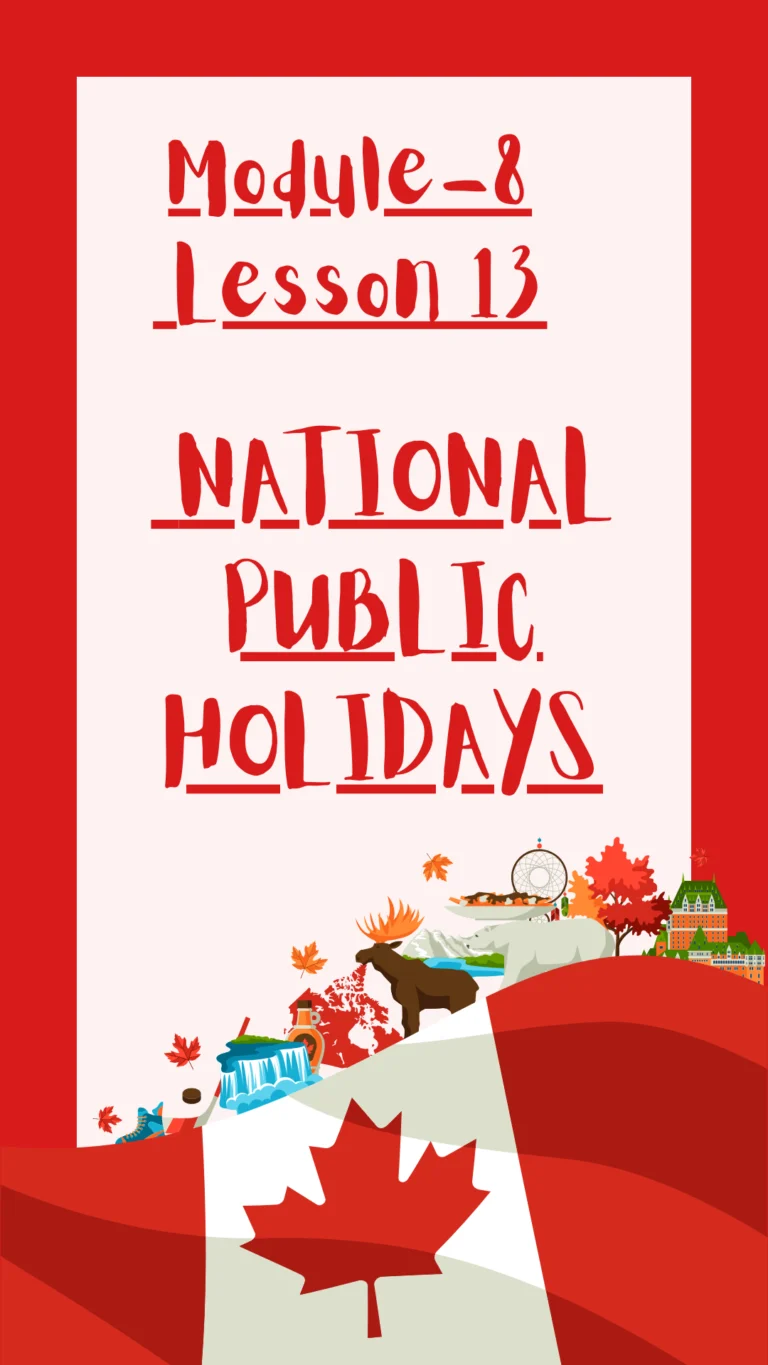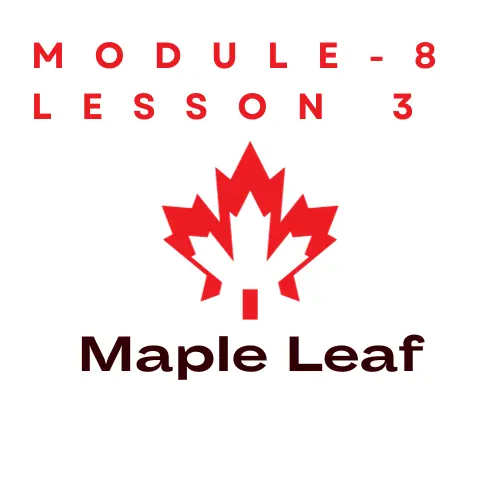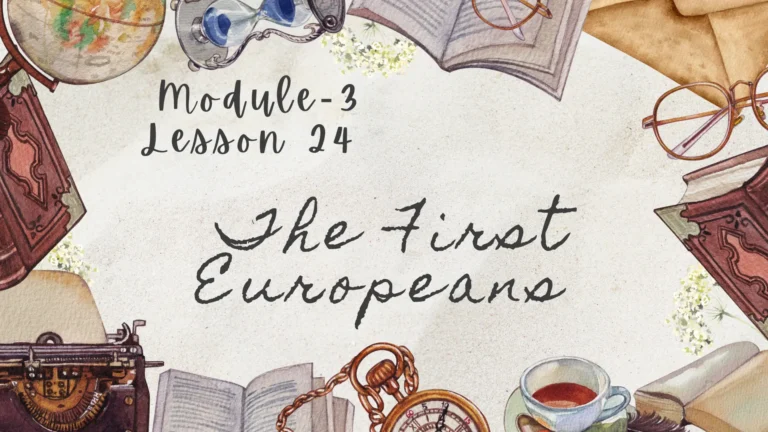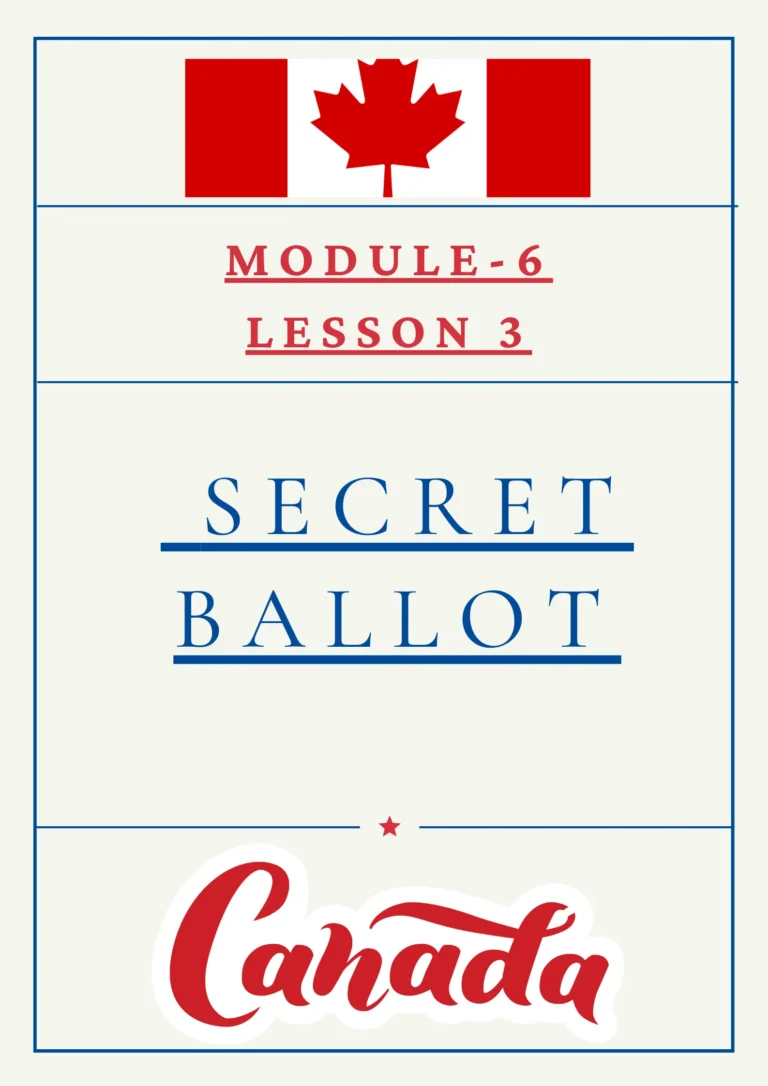Module-10 Lesson 8 The West Coast
The West Shoreline of Canada, including the territories of English Columbia and the domain of Yukon, is a locale praised for its staggering normal magnificence, lively metropolitan habitats, and rich social variety. From the rough shore and mild rainforests to the clamoring urban communities and Native legacy, the West Coast offers an embroidery of encounters that add to the extraordinary character of this piece of the country. In this investigation of the West Coast, we dig into the topography, culture, economy, and natural importance that characterize this enamoring locale.
1. English Columbia:
Coastal Wonders and Cultural Treasures British Columbia (BC) is famous for its diverse landscapes, which include mountains, forests, and a beautiful coastline.
Geography:
The area is home to the great Rough Mountains, the seaside mountain range, and the fruitful Fraser Valley. The Pacific shore, including fjords, bays, and islands, adds to BC’s normal quality. Vancouver Island, available by ship, is known for its enchanting networks and outside sporting open doors.
Vancouver:
It is a clamoring city encompassed by normal excellence. The city is a mixture of societies, with different areas, a flourishing expression scene, and a standing for being quite possibly the most bearable city on the planet.
Native Heritage:
BC has a rich Native legacy, with a critical population of First Nations people groups. The command hierarchies in places like Stanley Park and the historical center of human studies in Vancouver demonstrate the masterfulness and social meaning of the Native American group. Diverse Indigenous languages, customs, and artistic expressions are found in the province.
Whistler:
Whistler, situated in the Coast Mountains, is an incredibly famous hotel objective known for its ski slants, outside exercises, and dynamic town climate. It facilitated the 2010 Winter Olympics, pointing out the district worldwide.
Monetary Contribution: English Columbia’s economy is complex, with commitments from enterprises like normal assets, innovation, film creation, and the travel industry.
Regular Resources:
BC has plentiful normal assets, including lumber, minerals, and fisheries. The ranger service industry has had a verifiable impact on the region’s economy; however, supportable ranger service rehearsals are progressively stressed to offset monetary action with ecological protection.
Innovation and Innovation:
Vancouver, along with the entire BC region, has established itself as a technology and innovation hub. The city’s tech area, filled with new businesses, laid-out organizations, and a talented labor force, adds to the region’s monetary development. The foundation of tech hatcheries and examinations further supports advancement.
Film and TV Production:
BC is a significant place for film and TV creation, with Vancouver frequently alluded to as “Hollywood North.” The region’s different scenes act as backgrounds for different film and television projects. The region reaps economic benefits and employment opportunities from the film industry.
Ecological Conservation: The West Coast has major areas of strength for ecological preservation, perceiving the significance of saving its exceptional environments and biodiversity.
Preservation Areas:
English Columbia has various safeguarded regions and public parks, including Pacific Edge Public Park Hold, Gwaii Haanas Public Park Save, and Yoho Public Park. These regions recognize the area’s obligation to safeguard its regular legacy.
Environment Action:
Through initiatives like the CleanBC plan, BC is actively dealing with climate change. The region expects to decrease ozone-depleting substance discharges, increase energy proficiency, and progress to a low-carbon economy. Approaches and practices center around maintainability and flexibility despite environment-related difficulties.
2. Yukon: Northern Wild and Native Traditions
Yukon, a domain in the northwestern part of Canada, is known for its immense wildness, verifiable importance during the Klondike Dash for unheard of wealth, and a solid Native presence.
Geography:
Yukon is described by its far-reaching wilderness including boreal woodlands, mountain ranges and the famous Yukon Waterway. Kluane Public Park and Hold, an UNESCO World Heritage Site, features the locale’s staggering scenes.
Gold Rush in Klondike:
Yukon acquired worldwide consideration during the Klondike Dash for the unheard-of wealth of the late nineteenth century. With well-preserved buildings and artifacts, Dawson City, a historic town, preserves this era’s heritage. The memorable Chilkoot Trail which was utilized by miners during the gold rush, is currently a famous climbing course.
First Nations:
Yukon is home to different Native societies, with First Nations like Champagne and Aishihik, the Teslin Tlingit Chamber, and the Kwanlin Dün First Country. Native practices, dialects, and workmanship are essential to the region’s social scene.
Northern Lights:
Because it is in the far north, Yukon is a great place to see the northern lights (aurora borealis). The vast, pitch-black night sky is the ideal backdrop for this natural phenomenon.
Problems and Activities in the Economy:
Mining, tourism and traditional Indigenous activities all have an impact on the Yukon’s economy, which is challenged by the region’s remoteness and harsh climate.
Mining:
Mining, including the extraction of minerals like gold, silver, and zinc, has been a vital financial movement in Yukon. The mineral wealth of the territory has significantly contributed to its economic growth. Dependable mining rehearsals are essential to offsetting financial advantages with natural contemplations.
Tourism:
Yukon’s wild and verifiable locales draw in sightseers looking for open-air undertakings and a brief look into the domain’s celebrated past. The travel industry adds to the neighborhood economy; however, the occasional idea of this industry presents difficulties for all-year work.
Foundation Challenges:
Yukon’s distant area and unforgiving environment present difficulties for framework advancement. Keeping up with transportation organizations, like The Frozen North Thruway, is urgent for interfacing networks and supporting financial exercises. Addressing framework needs requires imaginative arrangements fit for the northern climate.
Social safeguarding and heritage:
The Yukon places a strong emphasis on supporting Indigenous traditions and preserving its cultural heritage.
Social Centers:
Yukon is home to social focuses and historical centers that feature the experiences and customs of its Native people groups. The Kwanlin Dün Social Center in Whitehorse, for instance, offers displays, exhibitions, and instructive projects.
Language Revitalization:
Endeavors to rejuvenate Native dialects are in progress in Yukon, recognizing the significance of protecting phonetic variety and social information. Language projects and drives plan to guarantee the continued utilization of Native dialects.
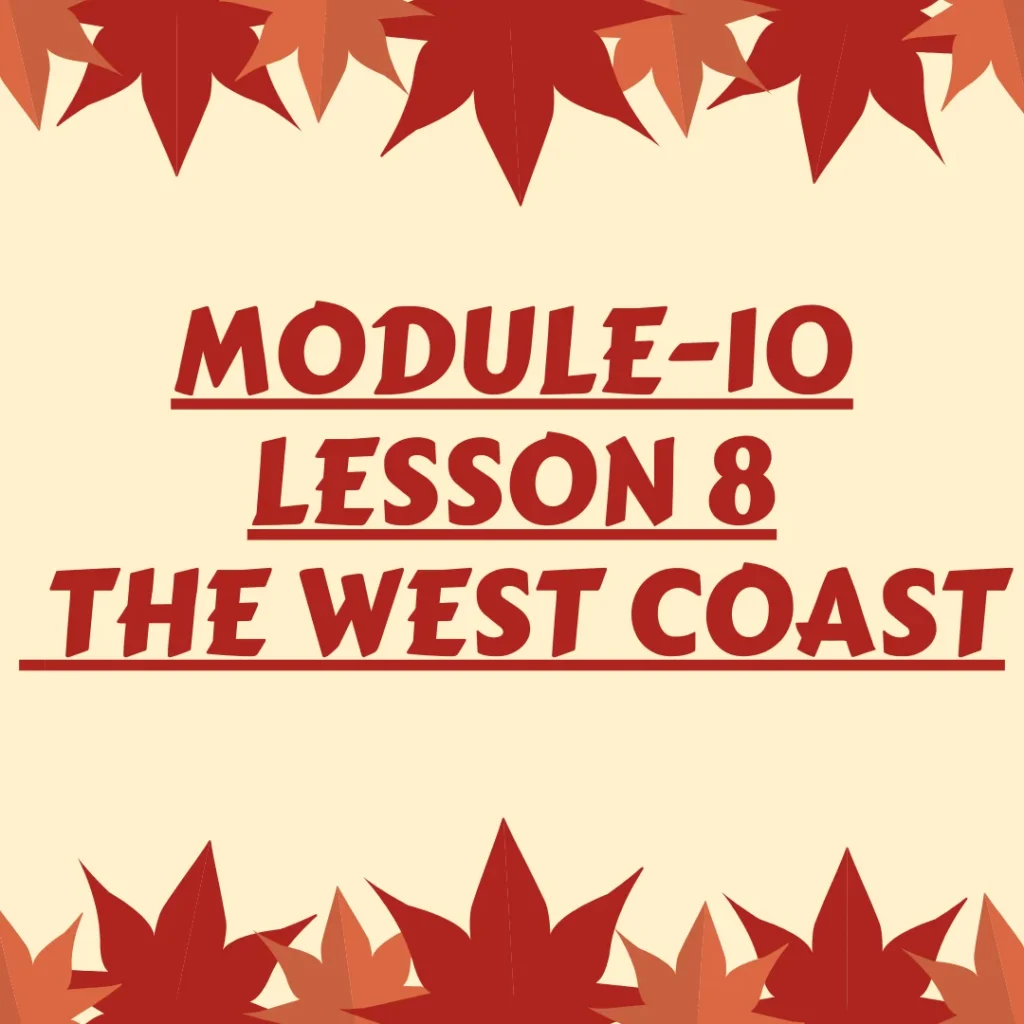
Conclusion: An Embroidery of Variety and Regular Splendor of the west
The West Shoreline of Canada, incorporating English Columbia and Yukon, winds together an embroidery of variety, regular wonder, and social extravagance. From the cosmopolitan urbanity of Vancouver to the huge wilderness of the Yukon, the district offers a dynamic and complex experience.
The West Coast is still a shining example of perseverance and creativity despite the difficulties it faces with issues like Indigenous rights, economic sustainability, and protecting the environment. The obligation to save humanitarian miracles, encourage social variety, and embrace economic practices mirrors the locale’s commitment to making a dynamic and amicable future. The West Coast of Canada is a testament to the country’s vast and diverse landscapes. Here, nature and culture come together to tell a compelling story that changes with the seasons.

